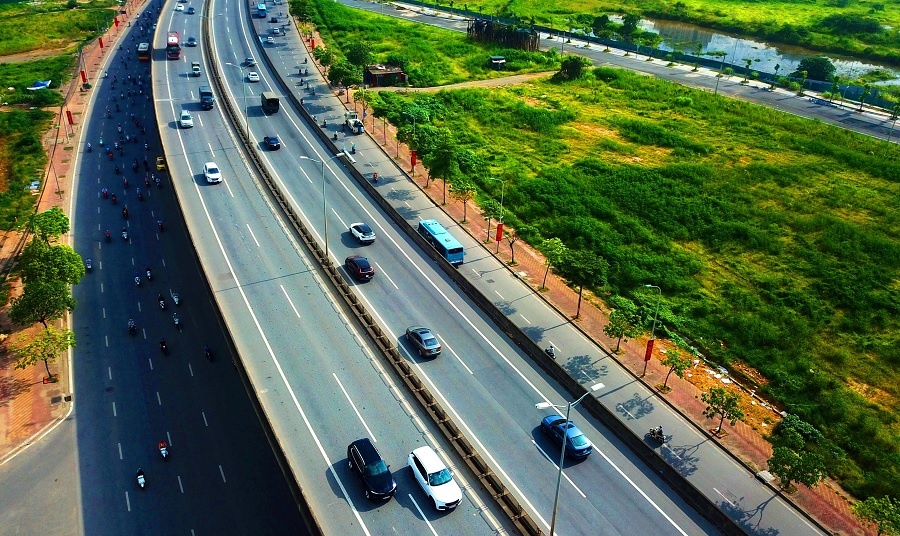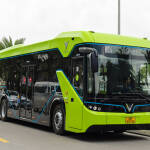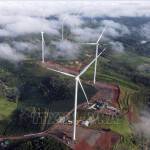
Driven by strong exports, sound macroeconomic policies, and effective policy buffers, ASEAN economies registered growth of 5.6 per cent in 2022 and are on track to together become the world’s fourth-largest trading block by 2030.
The future looks promising, but ASEAN economies must not lose sight of headwinds like climate change, geopolitical tensions, and the ever-present possibility that a future pandemic could derail their recovery.
At the heart of ASEAN’s resilient and dynamic growth is quality infrastructure development, which in turn lays the foundation for economic development. Infrastructure underpins all vital aspects of economic activity and is crucial for prosperity.
ASEAN’s development needs include social infrastructure like healthcare and education, as well as climate-smart investments to help deliver a fair, affordable, and secure transition away from fossil fuels. Finding the right mix between addressing the region’s energy transition needs and its continued economic transformation will be key.
The demand for infrastructure financing is immense and far beyond what governments alone can provide. According to a 2017 Asian Development Bank (ADB) study, developing Asia will need $13.8 trillion in infrastructure investment between 2023 and 2030. With many critical assets needed, infrastructure demand will continue to grow.
Closing the infrastructure gap will be vital for improving connectivity, facilitating trade and investment, enhancing competitiveness, and fulfilling the commitments to move the region forward towards meeting the UN’s Sustainable Development Goals. This is true for both developing and developed economies, and it is well recognised by every country in the ASEAN+3 group – which includes China, Japan, and South Korea, alongside ASEAN’s 10 member states.
There is more than $200 trillion of private capital invested in global capital markets today. Accessing these funds will be key for addressing ASEAN’s critical infrastructure financing needs. To unlock this support, ASEAN governments should raise the attractiveness of the region as a destination for infrastructure investment.
Governments should bolster investor confidence by demonstrating that their legal, regulatory, and institutional frameworks are strong and consistent. They should also ensure that their capacity to prepare, design, and implement infrastructure projects is well developed, that their investment climate is favourable, and that attractive returns for investors are possible.
Importantly, ASEAN+3 economies are starting to adopt innovative mechanisms to de-risk project financing and widen their investment funding pools. One such innovation is the use of blended finance to reduce risks and enhance the bankability of projects that might not otherwise appeal to commercial investors.
Working with Indonesia and the Philippines as leading partners, the ADB’s recently established Energy Transition Mechanism will take advantage of low-cost capital from various concessional, public, and private sources to incentivise the early retirement or repurposing of coal power plants. This will be an important step towards helping the region achieve net-zero emissions by 2050.
Likewise, the ASEAN Catalytic Green Finance Facility aims to reduce risk and enhance credit for green infrastructure projects. It has attracted $2 billion in co-financing from development partners, including some from outside the region, to support new bankable and environmentally sustainable projects.
ASEAN+3 economies are also advancing innovations like the use of disaster risk insurance to address the effects of climate change. The Southeast Asia Disaster Risk Insurance Facility provides technical assistance and disaster-risk financing solutions for ASEAN countries.
In addition, the launch of social bonds under the ASEAN Social Bond Standards has mobilised much-needed private capital to help meet the food security, job creation, and economic advancement needs of local communities in the region.
As a trusted development partner of ASEAN+3 economies for close to six decades, the ADB has an important role to play in investing in quality social infrastructure, leveraging digital and innovative technologies, and working with members with a sense of common purpose to raise funds for a resilient and sustainable net-zero future.
Providing a road map for future success, ASEAN+3 finance ministers and central bank governors jointly launched a report with the ADB on innovative financing solutions for infrastructure investments in the region at the start of the bank’s annual meeting on May 2.
The report offers unique ASEAN+3 perspectives on the priorities, challenges, and opportunities for infrastructure investment in developing Asia. It also presents fit-for-purpose financing models and critical success factors from case studies, providing replicable solutions to help deepen private-sector engagement in the region.
Building resilient and sustainable infrastructure for the future is critical. It is time to act and together forge stronger partnerships with the private sector to deliver a brighter future for our children and generations to come.
Masatsugu Asakawa, Sri Mulyani Indrawati, Indranee Rajah, and Shunichi Suzuki(*)




